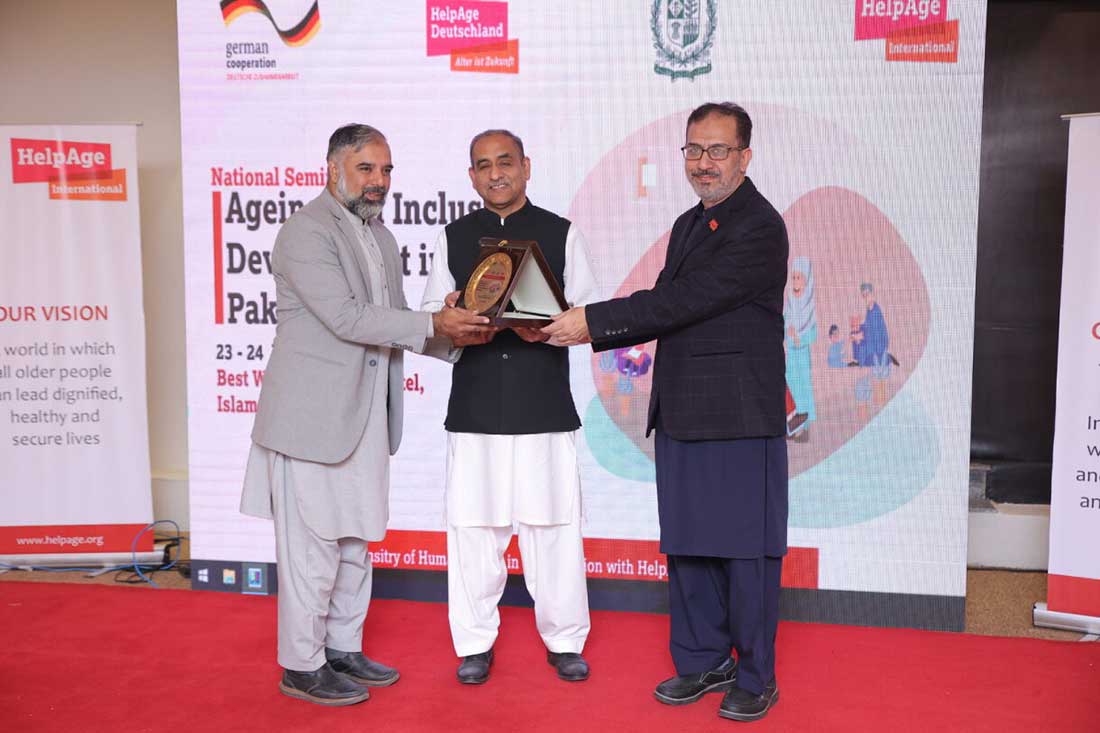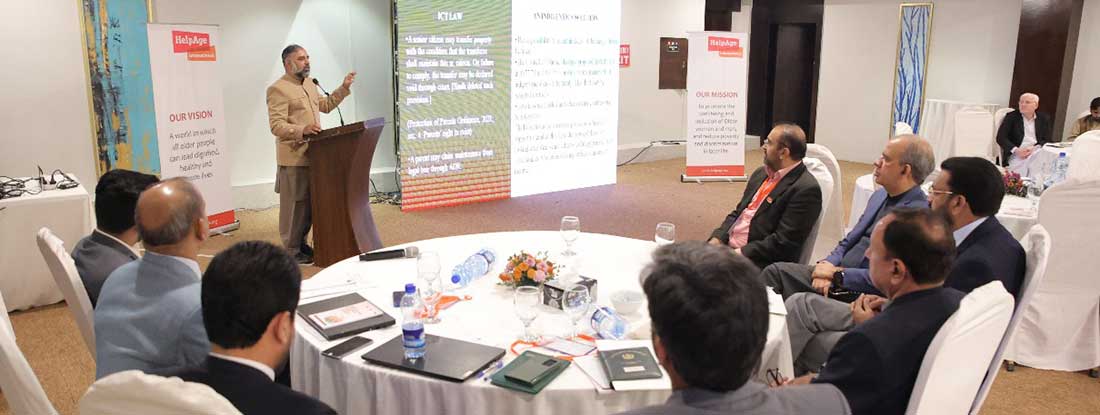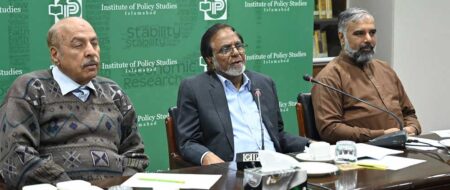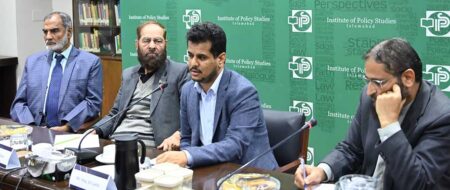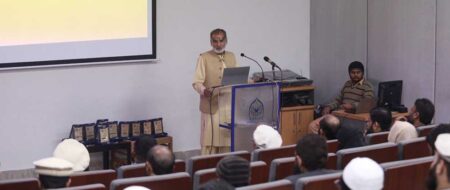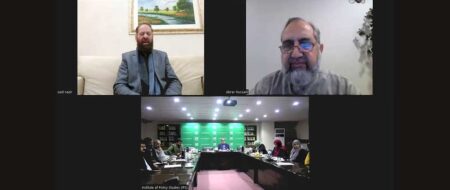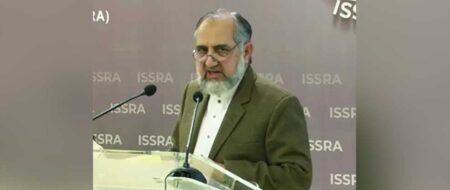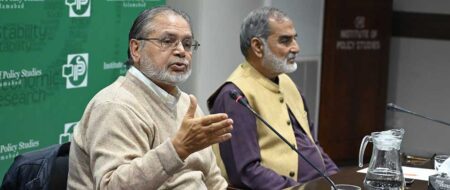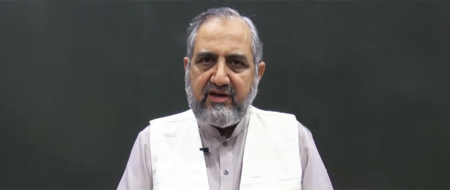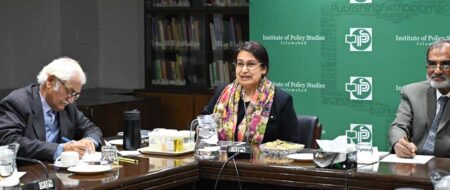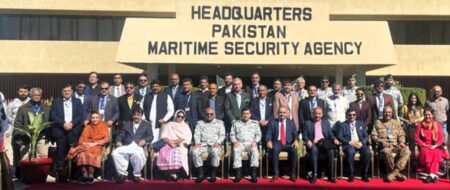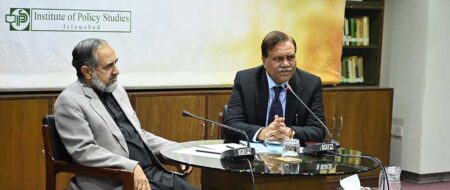IPS highlights intricacies of provincial laws concerning the social protection of senior citizens
To ensure the holistic well-being of the elderly, it is imperative to uphold the dignity and rights of senior citizens while advocating for familial responsibility, community engagement, and a multi-faceted legal framework.
This was highlighted by Syed Nadeem Farhat, senior research fellow, Institute of Policy Studies (IPS), while representing the institute at the two-day national seminar on ‘Ageing and Inclusive Development in Pakistan,’ which was organized by the Ministry of Human Rights in collaboration with HelpAge International on November 23-24, 2023. Muneeba Rasikh, junior research officer, IPS, and Maryam Ihsan, junior researcher, IPS, also attended the forum.
The seminar was addressed by legal experts, policymakers, and stakeholders in the field of ageing and inclusive development with the primary objective to evaluate and discuss the current legal frame concerning ageing as well as policies essential for ensuring inclusive development for all age groups in Pakistani society.
The speakers delved into critical aspects such as legal rights, social inclusion, healthcare, and economic participation concerning the elderly population in keynote addresses, panel discussions, and interactive sessions to encourage a comprehensive dialogue on these pertinent matters.
While delivering his insights on ‘Policy Analysis: Legal Framework and Implementation,’ Nadeem Farhat highlighted that Pakistan is one of the fifteen nations with a significant population of older adults and has approximately 14 million individuals above 60 years, constituting about 7% of the populace. This insight is drawn from the British Council report ‘Promoting and Protecting the Rights of Older Persons in Pakistan.’
During the presentation, Farhat delved into the intricacies of provincial laws concerning the social protection of senior citizens. He highlighted that loopholes in current laws must be addressed through indigenous solutions. In this regard, he underscored the critical need to address familial responsibility towards elders and said that the responsibility to maintain elders of the family should be fixed.
Highlighting historical considerations, he referenced the Council of Islamic Ideology’s proposed law of 1998-99, focusing on the framework for indigent family members, proposing a revision of this draft for contemporary relevance.
The rightful solutions can also be found around global examples from Muslim nations like Iraq, Tunisia, and Jordan, where similar legal frameworks provide insights into social protection paradigms for senior citizens. He also shed light on the Balochistan Senior Citizens Act, 2017, stressing its provisions for extending financial support to families responsible for the care of senior citizens. The same considerations are present in the Gilgit-Baltistan Senior Citizens Welfare Act, 2022, for families facing financial constraints.
The discussion also underscored the significance of community-level engagement and networking in advocating for the welfare of older individuals. The key takeaways centered on the preservation of the dignity of the elderly through emotional bonds, the importance of purpose and productivity in every life stage, and the imperative nature of familial responsibility in caring for elders.
The presentation emphasized the role of social frameworks, proposing collaboration among provinces to share experiences and explore the operationalization of indigenous social models. The discussion also urged the study of societal laws mirroring shared values and the creation of adaptive models for effective implementation.
